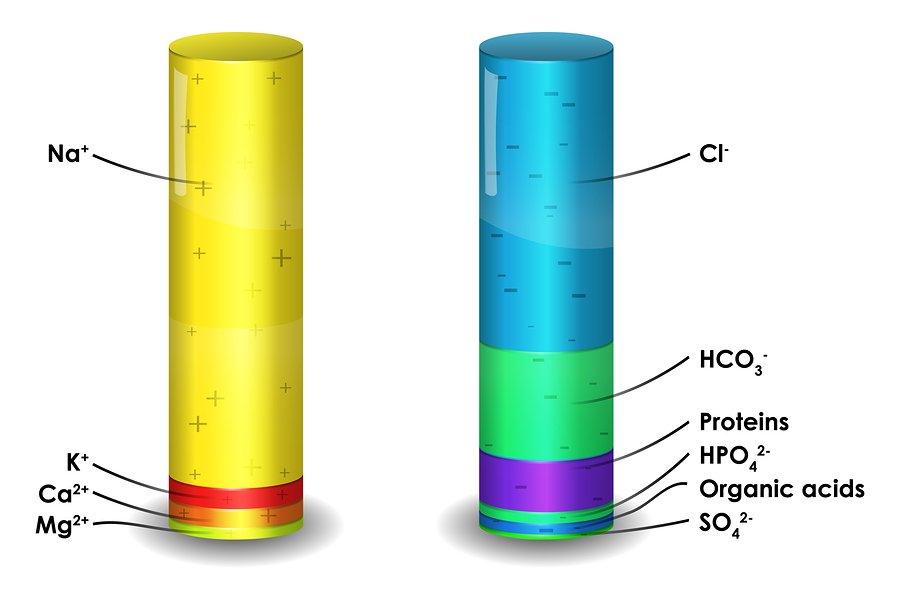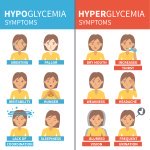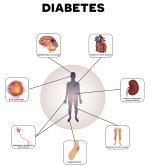Metabolic Alkalosis

Metabolic alkalosis occurs when your body is too alkaline (has too many bases). Another way of saying this is that the pH in the tissue of your body is elevated beyond the normal range of 7.35 to 7.45.
Your blood is made up of bases (often serum bicarbonate) and acids. The amount of bases and acids in your blood can be measured on a pH scale. It is vital to maintain the optimum balance between bases and acids. Even a slight change can cause health challenges. Normally, your blood should have a slightly higher amount of bases than acids.
Alkalosis occurs when your body system has too many bases. It can occur due to decreased levels of carbon dioxide in the blood, which is an acid. It can also occur due to significantly increased blood levels of bicarbonate, which is a base.
This condition may also be related to other underlying health issues such Hypokalemic and low potassium. The earlier it’s detected and treated, the better the outcome is.
The five types of alkalosis
There are five main types of alkalosis.
Respiratory alkalosis
Respiratory alkalosis occurs when there is no enough carbon dioxide in your bloodstream. It is often caused by:
• Hyperventilation, which commonly occurs with anxiety
• Salicylate poisoning
• Being in high altitudes
• High fever
• Lack of oxygen
• Lung disease
• Liver disease
Metabolic alkalosis
Metabolic alkalosis develops when your body gains too much base or loses too much acid. This causes an imbalance in the hydrogen ion and bicarbonate concentrations in the body.
This can be attributed to:
• Excess vomiting, resulting in the loss of gastric secretions rich in hydrochloric acid and resulting in too much bicarbonate (base)
• Antacids
• Adrenal disease
• Overuse of diuretics
• A large loss of potassium or sodium in a short amount of time
• Alcohol abuse
• Accidental ingestion of bicarbonate, which can be found in baking soda
• Laxatives
Hypokalemic alkalosis
Hypokalemic alkalosis occurs when your body lacks the normal amount of the mineral potassium needed to function properly. You normally get potassium from the food you eat, but not eating enough of it is rarely the cause of a potassium deficiency. Excessive sweating, kidney disease, and diarrhea are just a few ways you can lose too much potassium. Potassium is essential to the proper functioning of the:
• Heart
• Digestive system
• Muscles
• Kidneys
• Nervous system
Hypochloremic alkalosis
Hypochloremic alkalosis occurs when there is a drastic and significant decline of chloride in your body system. This can be due to prolonged sweating or vomiting. Chloride is an important chemical needed to maintain balance in bodily fluids, and it is an essential part of your body’s digestive fluids.
Symptoms of alkalosis, both Metabolic Alkalosis and the Rest
Early symptoms
Symptoms of alkalosis can vary. In the early stages of the condition, you may have:
• nausea
• pProlonged muscle spasms
• Numbness
• Muscle twitching
• Hand tremors
Serious symptoms
If alkalosis isn’t treated immediately, severe symptoms can develop. These symptoms could lead to shock or coma. Go to the nearest emergency room if you experience any of these symptoms:
• Dizziness
• Confusion
• Difficulty breathing
• Coma
• Stupor
How do I prevent alkalosis?
Reduce your risk for developing metabolic alkalosis, as well as the others, by living a healthy lifestyle, eating a healthy diet, and staying hydrated at all times. Choosing foods high in potassium and nutrients can help combat electrolyte deficiencies. Nutrients and potassium are primarily found in vegetables and fruits, as well as some other foods, such as:
• Carrots
• Bran
• Bananas
• Spinach
• Beans
• Milk
Steps you can take to prevent dehydration include:
• Drinking water before, during, and after exercise
• Drinking 8 to 10 glasses of water per day
• Using electrolyte-replacement drinks for high-intensity exercises (like coconut water or make a homemade electrolyte replacement drink with ¼ tsp sea salt and 1 tsp calcium magnesium powder in 1 quart of water) avoid sports drinks like Gatorade because they are full of sugar, artificial colors and flavors.
• Limiting caffeine, commonly this is found in soda, tea, energy drinks and coffee
• Avoiding sodas or juices, which have a high sugar content and can make dehydration worse
It’s crucial to remember that you are already dehydrated if you feel thirsty. Dehydration can also occur very quickly if you lose a lot of electrolytes. This can happen when you are vomiting from the flu. If you cannot keep potassium-rich foods in your stomach, then make sure you still drink adequate fluids, such as the electrolyte replacement drink above, coconut water, spring or purified water and broth-based soups.
The outlook for alkalosis largely depends on how quickly it is diagnosed. The earlier your condition is treated, the better the outcome is. Alkalosis triggered by existing kidney conditions may not be preventable. It is also important to follow all of your healthcare provider’s instructions once you get a diagnosis.



New! Facebook Comments
What do you think? Share your thoughts below...